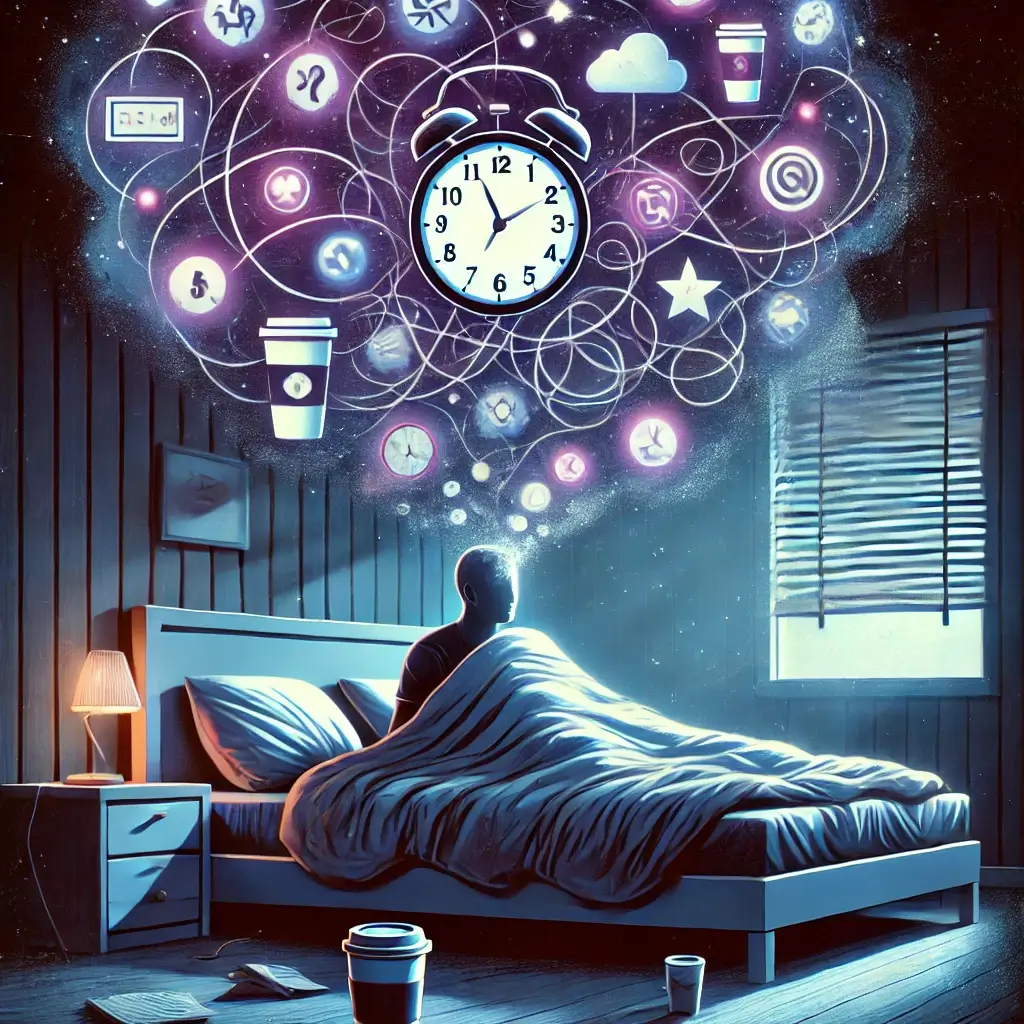Understanding Sleep Disorders
A sleep disorder, insomnia can cause difficulty falling asleep, remaining unconscious, or obtaining sufficient restorative sleep. It is a widespread issue that impacts individuals across all age groups.
Common Causes of Sleep Disruption
Anxiety, depression, tension, certain medical conditions, and medications are among the numerous potential causes of insomnia. Poor sleep practices, including the consumption of alcohol, caffeine, and irregular sleep schedules, can also contribute to insomnia.
Health Implications of Chronic Sleep Loss
Additionally, insomnia may result in enduring health repercussions. An increased risk of obesity, cardiovascular disease, and depression has been associated with it. An increase in appetite and a predilection for high-calorie foods may result from sleep deprivation’s impact on hormone levels.
Hormonal Impact on Health
Additionally, it may induce a surge in tension hormones, a factor that may be detrimental to cardiovascular health. In addition, due to the necessity of sleep in mood regulation, chronic insomnia may heighten the likelihood of developing depression.
Common Symptoms of Insomnia
Although the symptoms of insomnia can differ from individual to individual, they might comprise:
Inability to initiate slumber
Awakening in the middle of the night and being unable to return to sleep
Too early in the morning awakening
Tired or unrested despite having slept a complete night
Experiencing daytime fatigue
The feeling of ire
Inability to concentrate
Difficulty managing emotions
Impact on Work Performance
Insomnia can impede productivity and concentration at the workplace. Insufficient sleep can have detrimental effects on cognitive function, resulting in challenges such as impaired recall of crucial information and inefficiency in task completion. This may result in heightened levels of tension, failure to meet deadlines, and a diminished perception of job fulfillment.
Academic Performance Effects
Insomnia can impair a student’s capacity to acquire and retain information in the classroom. Insomnia can impair the consolidation of memories, thereby impeding the recollection of information acquired during class. Poor grades and a feeling of frustration may result from its negative influence on academic achievement.
Impact on Personal Relationships
Irritation and mood swings brought on by insomnia can hinder the ability to communicate effectively with loved ones in romantic partnerships. Additionally, sleep deprivation can result in a diminished libido, which can strain intimate relationships.
Treatment Options Available
For insomnia, there are a variety of treatment options available. The optimal treatment for your insomnia will be contingent upon its underlying cause. Examples of typical treatments include:
Cognitive-behavioral therapy (CBT) is an intervention that addresses the underlying causes of insomnia by assisting individuals in recognizing and modifying their maladaptive thoughts and behaviors.
Methods of relaxation: Deep breathing and meditation are examples of relaxation techniques that can assist you in falling asleep and remaining unconscious.
Sleep hygiene pertains to the routines and behaviors that facilitate restful slumber. Establishing a regular sleep schedule, developing a relaxing twilight routine, and avoiding caffeine and alcohol before bed are examples of such practices.
Medication: A variety of pharmaceutical interventions are available for the treatment of insomnia. It is imperative to utilize these medications exclusively under the guidance of a medical professional.
Seeking Professional Help
Consult a physician immediately if you are experiencing difficulty sleeping. They may be able to assist you in identifying the source of your insomnia and suggest the most effective treatment.
Preventative Measures
Here are some preventative measures against insomnia:
It is advisable to establish and adhere to a consistent sleep schedule, even on vacations.
Establish a calming bedtime ritual. Engaging in tranquil activities such as reading a book, having a warm bath, or listening to music may all contribute to this.
Ensure that your chamber is cool, calm, and dark.
Consume no alcohol or caffeine before slumber.
Exercise frequently, but avoid doing so too close to nighttime.
If you have difficulty resting for over two weeks, consult a physician.
Path to Recovery
Although insomnia is a frequent issue, it is curable. If you are experiencing difficulty napping, consult your physician. They may be able to assist you in identifying the source of your insomnia and suggest the most effective treatment.
Final Thoughts
Insomnia can exert a substantial influence on an individual’s overall well-being, impeding their performance in professional, academic, and interpersonal spheres. Insomnia treatment is essential for preventing long-term health complications and enhancing general wellbeing.
